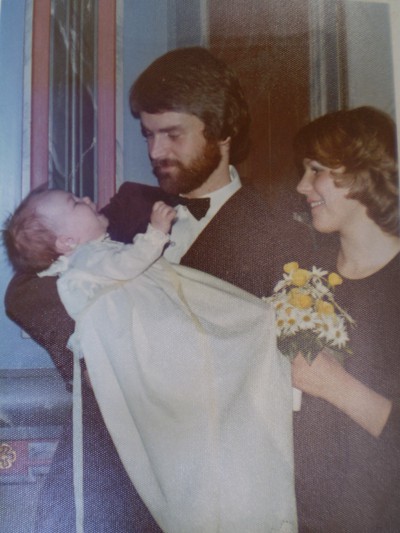This is my third cousin...

...Eva-Karin Strand Wåtz, who is a really artistic person and has the special ability to provoke my humour.
The baptism...
My poem about the past
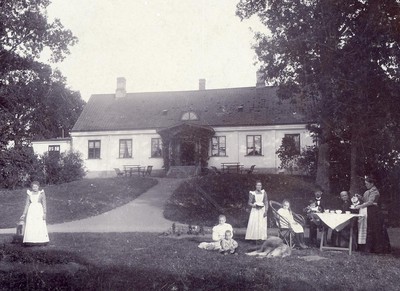
The past, you see, it isn't gone,
it's just a bit more distant now.
And if the past was really gone
the now was also never there.
For what we think to be the now
has no duration – none at all.
Because it starts to be the past
as soon as it becomes the now.
So everything that ever was
is as it has ever been.
And if there ever was a now
it was the border of the past,
a border that just ceased to be,
which just became and never was.
The past, you see, it isn't gone.
It’s just a bit more distant now.
Leksand, September 20, 2010.
Photo shows Asarum's vicarage, Lydia's home as a child.
A photo from 2007...
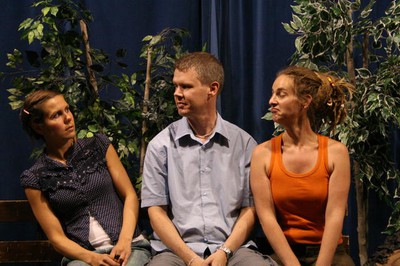
...Loose Moose Theatre Company, Calgary. A two-weeks course in improvisation.
As you can see, there were all kinds of people.
I remember...
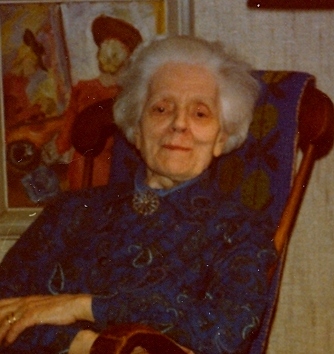
...my great grandmother saying:
It's no fun becoming this old.
(Paus for two seconds.)
But one cannot always have fun.
If Lydia Lindman had a telephone...
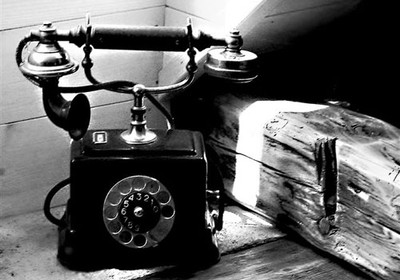
...which I believe she had, I guess it looked something like this. So how did she answer it? Well, for sure she didn't say: "Hi dude, what's up?" And I guess the text messages were quite a few.
It's interesting to see how the telephone culture has changed only during my lifetime. In the 70s there were (in Sweden) three polite ways of answering the telephone. By saying your phone number, saying your last name or saying your first and last name. Not just "hello" which is very common in many other countries.
But at some time in the late 80s something changed: people in my own generation started to answer with their first names only. All my cousins i Stockholm did and soon I did it as well. Suddenly it was considered formal to use your last name when it wasn't necessary. And in the mid-90s the older generations started to follow the trend. For example my grandmother, who was very modern, answered the telephone (the last two-three years of her life) by only saying "Brita". When cultural changes occur, the informal seems to win over the formal.
The cell phone culture that we live in today, either we like it or not, has been commented by the Swedish writer and director Peter Dalle. Imagine, he said, that the SMS function had been invented before it was possible to hear the other person's voice. Then, when this became possible, people would have said: "What a progress!"
May I present...

...Klara Hanell Strand (born 1985), who is a part of our family although she might not even know it. She is a great great granddaughter of Kerstin Lindman and thereby a fourth cousin of the children that I don't (yet) have. Or to put it more simple: her father is my third cousin, in Swedish brylling. Hello my distant relative!
A child is born
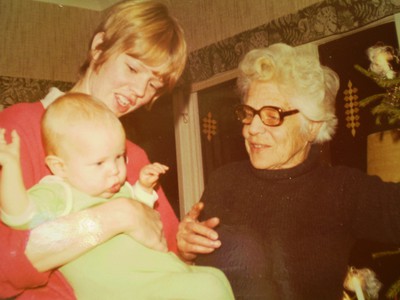
1973. My mother and Aunt Karin admiring a new born Family Historian.
In 12 days...

...there will be an election to parliament in Sweden. Photo shows the two Prime Minister candidates. I watch all the political debates in television and find them exciting. But, as usual, I reflect on matters.
When it comes to what politics is today, some people just seem to think: "That's the way things are". But I don't agree: things aren't, they have become and they have become for reasons that we should find out.
How come all the established political parties are nowadays, at least on the surface, somewhere in the ideological middle (even though the Swedish Conservative party is far more to the left than the American Democrats)? How did it happen?
How come the focus in mass media is on the people who represent the parties, more than on the ideas that they are made up from? How did it happen?
How come the focus so easy change from political matters to more trivial things? Some days ago the representative of the former Communist party was interviewed in TV. He was defending the view that parents should share the parental leave during the child's first year, and he mentioned the possibility for women to use a breastpump. Guess what was most remembered from that interview. Guess what was most commented afterwards. His views about the taxes? His views about the war in Afghanistan? No, the breastpump of course.
So what is the damn attraction in trivial things?? And how come intelligent people accept that trivial things are treated as important and interesting??
The Wennberg grandchildren. Year 1964.
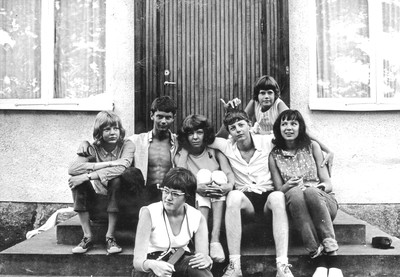
Margareta, Hasse, Birgitta, Johan, Ingrid, Anniqua and Ulla.
Really hard to understand that they have also been lazy youngsters with attitude.
The Wennberg family. Year 1946.

Gösta, Stina, Helge, Anna and Brita in the best photo hitherto.
This is Margaret Finnell...
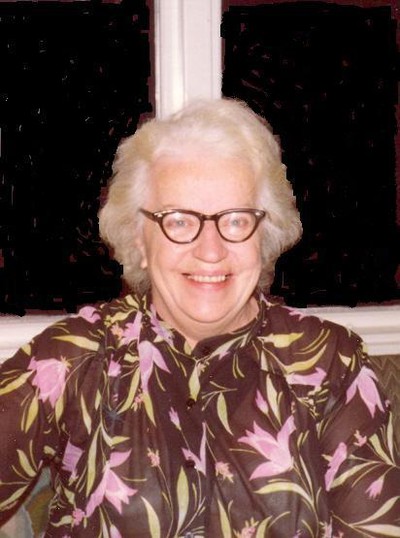
...my grandmother's cousin. For Christmas in 1987 she did something that everyone should do. She recorded her own voice and sent a cassette tape to her sister Else in Sweden. On the tape she tells us about the past year, some trivial things and some important; she even has a few thoughts about her grandmother Lydia.
And right now we are transferring this tape (along with other tapes) to CD! So hopefully, in a few months, we will have a new, attractive part of the website: a voice bank, where you can listen to samples of voices - for example Margaret's.
